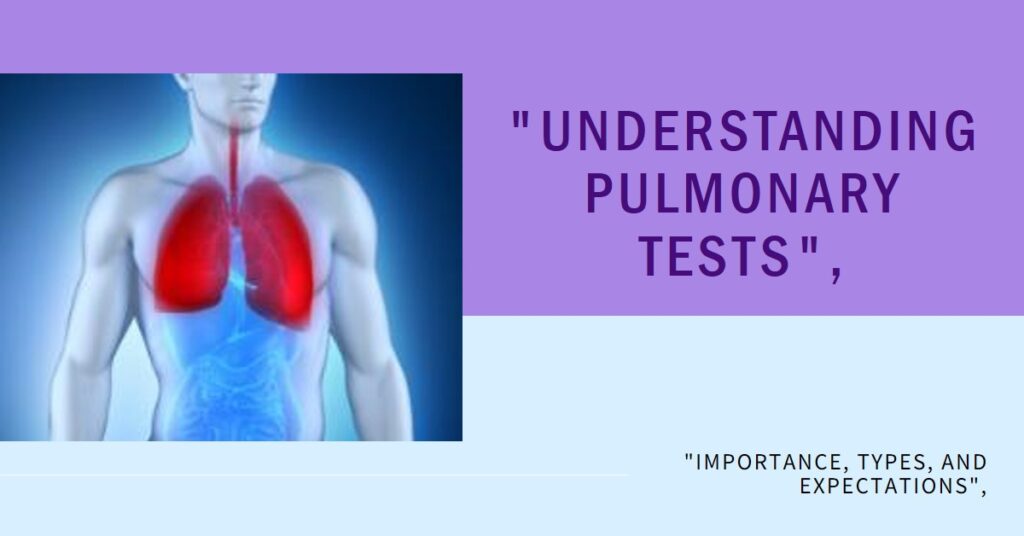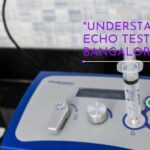Pulmonary Function Tests (PFTs) are a group of non-invasive tests that measure how well your lungs are functioning. They play a critical role in diagnosing, managing, and monitoring various respiratory conditions such as asthma, chronic obstructive pulmonary disease (COPD), and pulmonary fibrosis. With the increasing prevalence of respiratory ailments worldwide, the importance of PFTs cannot be overstated.
What Are Pulmonary Function Tests?
Pulmonary Function Tests are diagnostic tools designed to evaluate lung capacity, airflow, and gas exchange efficiency. These tests help determine:
-
Lung volume: The amount of air your lungs can hold.
-
Flow rates: How quickly air moves in and out of your lungs.
-
Gas exchange: How well oxygen enters your blood and carbon dioxide is removed.
PFTs are essential for assessing the severity of respiratory conditions and guiding treatment plans.
Types
Several types of PFTs are commonly used, including:
1. Spirometry
The most widely used PFT, spirometry measures how much air you can exhale and how quickly. It’s particularly useful in diagnosing asthma and COPD.
2. Lung Volume Tests
These tests, including body plethysmography, measure the total amount of air in your lungs after a deep inhalation. They are crucial for detecting restrictive lung diseases.
3. Diffusion Capacity Tests
These tests evaluate how well your lungs transfer oxygen from the air into your bloodstream. Reduced diffusion capacity may indicate diseases like pulmonary fibrosis or emphysema.
4. Exercise Stress Tests
These tests assess how physical activity impacts your lungs and are used for patients experiencing unexplained shortness of breath.
Who Should Get Pulmonary Function Tests?
PFTs are recommended for individuals who:
-
Have a history of smoking.
-
Experience symptoms like chronic cough, wheezing, or shortness of breath.
-
Are exposed to occupational hazards such as dust or chemicals.
-
Have a history of respiratory illnesses.
-
Are undergoing evaluation before surgery.
How to Prepare for a Pulmonary Function Test
Proper preparation ensures accurate test results. Here are some tips:
-
Avoid eating a heavy meal before the test.
-
Refrain from smoking for at least 4-6 hours prior.
-
Wear comfortable clothing that doesn’t restrict your breathing.
-
Consult your doctor about withholding bronchodilators or other medications.
What to Expect During the Test
PFTs are typically conducted in a hospital or specialized diagnostic center. The tests are painless and usually take 30-60 minutes. You’ll breathe into a mouthpiece connected to a machine, following the technician’s instructions.
Benefits
-
Early Diagnosis: Detect respiratory diseases in their early stages.
-
Treatment Monitoring: Assess the effectiveness of prescribed treatments.
-
Risk Assessment: Identify potential complications before surgery.
-
Long-Term Management: Track the progression of chronic conditions.
Limitations and Risks of PFTs
While PFTs are generally safe, they may cause mild discomfort such as dizziness or shortness of breath. These effects are usually temporary. However, PFTs may not be suitable for individuals with recent heart attacks or certain neurological conditions.
Real-World Data: The Growing Need for PFTs
According to the World Health Organization (WHO), chronic respiratory diseases affect over 500 million people globally. Spirometry alone has been shown to improve COPD diagnosis rates by nearly 50%. With air pollution and smoking remaining significant contributors, the demand for PFTs continues to rise.
Where to Get Pulmonary Function Tests
If you’re near Bangalore, Ecotown Diagnostics offers comprehensive Pulmonary Function Tests conducted by trained professionals. Our state-of-the-art facilities ensure accurate results and patient comfort.
Frequently Asked Questions (FAQs)
1. Are these Function Tests painful?
No, PFTs are non-invasive and painless, though you might feel shortness of breath during certain tests.
2. How long does a Pulmonary Function Test take?
Most PFTs are completed within 30-60 minutes.
3. Can children undergo PFTs?
Yes, PFTs can be adapted for children, especially for diagnosing conditions like asthma.
4. How often should I get PFTs?
Frequency depends on your condition. For chronic diseases like COPD, annual tests are often recommended.
5. What should I do if my test results are abnormal?
Discuss the results with your doctor to understand the implications and next steps.
Conclusion
These Function Tests are indispensable tools in modern medicine, providing critical insights into lung health. Whether you’re experiencing respiratory symptoms or need pre-surgical evaluation, PFTs can guide effective treatment plans. With their growing relevance in today’s world, there’s never been a better time to prioritize your respiratory health.
Have you had a Pulmonary Function Test recently? What insights did it provide about your health?
Also know Comprehensive Guide to Echo Test in Bangalore: Costs, Process, and Benefits


